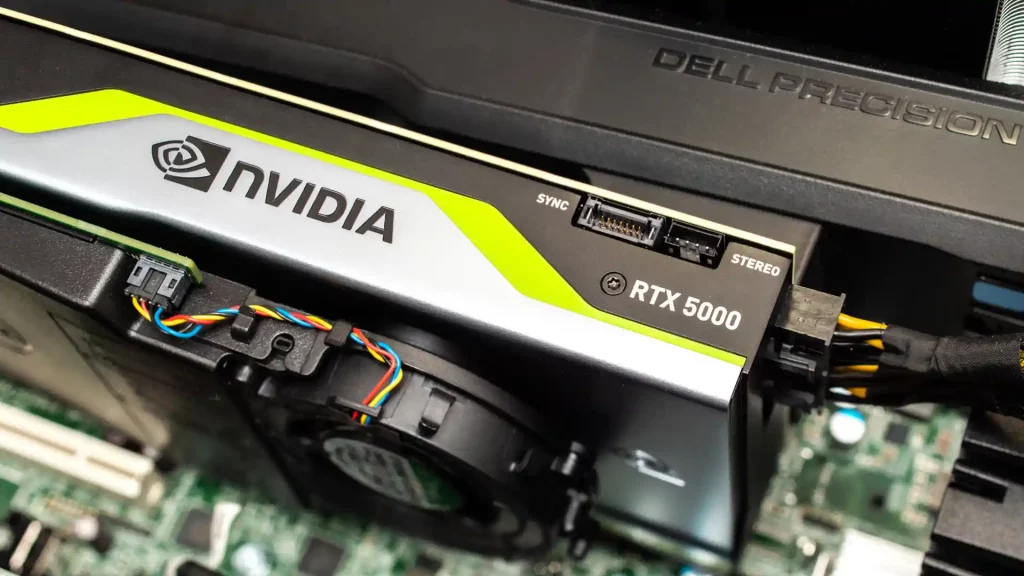Nvidia‘s ascent has captivated the stock market and propelled the S&P 500 Index to new highs. However, it serves as a cautionary reminder of another investor darling that surged on the promise of a technological change, only to plummet when those aspirations were dashed.
This stock belongs to Tesla (a US-based automotive and energy company), which generated its euphoria in 2017 when investors wagered that electric cars (EVs) would take over the world. Elon Musk’s company was a phenomenon at the time, surpassing established carmakers like General Motors and Ford Motor in market capitalisation to become America’s largest automaker. Many analysts went on to look beyond the industry and dubbed it “the next Apple“.
Currently, Tesla shares are already down more than 50% from its 2021 high, and other EV equities that rose alongside them are shadows of their former selves. All of this should be worrisome for Nvidia investors, who view the company as an unlimited bet on the future of artificial intelligence. The company’s shares are up 66% this year after more than tripling in 2023. Adam Sarhan, CEO and Founder of 50 Park Investments, a US-based private investment firm, stated that he had seen many investors repeatedly falling in love with the notion of the latest technical advance, logic taking a back seat. He also believes that their emotions affect their decision-making.
Nvidia’s position is a strong indicator in the tech industry’s shifting focus. It has garened investor’s attention. The company’s shares increased in after-market trade by almost 7%. This increase has shown Nvidia to be a reliable performer in the tech industry.
Nvidia and Tesla’s Parallel Ascents
Nvidia and Tesla are very different from one another in terms of goods and the people who operate the businesses. But there are a lot of similarities. Based on the idea that its remarkable sales increase over the past year has staying power, Nvidia has risen from a tiny chipmaker to one of the largest firms in the world. Based on the belief that electric vehicles (EVs) would be widely and swiftly adopted and that Tesla would be the market leader, the business saw a vast breakout rally in 2020 that increased its valuation to well over US$1.2 trillion.
But in reality, the story is quite different. More cost-conscious, change-averse consumers are taking longer than anticipated to adopt new technologies, which is causing the surge of enthusiastic first adopters to purchase EVs to slow down in demand. Therefore, Tesla is among the Nasdaq 100 Index’s greatest percentage decliners this year, having dropped 31% from its most recent high set in July.
It’s too early in the Nvidia hype cycle to see any indications of a decline. With its chips being used to train massive language models that power artificial intelligence (AI) applications like OpenAI‘s ChatGPT, the Santa Clara, California-based company has produced blow-out results for four straight quarters. With a 66% increase, the stock in 2024 is once again the greatest performer in the S&P 500 Index, having more than tripled in value the previous year. With a market valuation of almost US$2 trillion, it is surpassed only by two US corporations: Apple and Microsoft.
The euphoria around the internet and the years preceding the dot-com boom comes to mind when discussing the widespread application of AI across industries and enterprises. However, in contrast to that period, when Internet companies were losing money and being valued based on novel metrics like “clicks,” Nvidia is making enormous profits. According to data compiled by a premium news source, the net income increased by almost 500% to around $30 billion US last year, and it is expected to quadruple this year.
Nvidia Faces New Competition
Nvidia still has a higher price-to-sales ratio in the S&P 500 at 18. This means that it has more substantial profits and has exceeded expectations. They are also the leader in the AI chips. However, the competition is heating up with companies like Advanced Micro Devices (a California-based semiconductor firm) and Microsoft, which are building their chips.
It would be interesting to see how this competition in AI chip development plays out. Nvidia’s current lead positions them well to capitalise on the growing need for powerful AI processing, but the efforts of AMD and even their own customers like Microsoft show a dynamic market with constant innovation. This is encouraging for the future because it may result in more potent and reasonably priced AI solutions for all.
